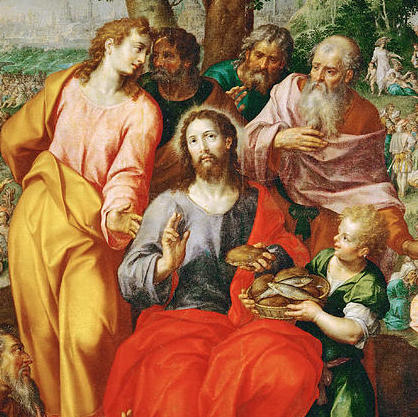Tag: John 6:1-15
-

Fourth Sunday in Lent
Readings: Exodus 16:2-21 | Galatians 4:21-31 | John 6:1-15 Text: John 6:1-15 We began Lent in the wilderness. Jesus is alone and hungry. Then, the Devil comes along and tempts him. Hunger is evil, he seems to say: “If you are the Son of God, command this stone to become bread to feed you in…
-

Fourth Sunday in Lent (Laetare)
Readings: Exodus 16:2–21 | Galatians 4:21-31 | John 6:1-15 Text: John 6:1-15 The name, Laetare, comes from the first word of the Introit, “Rejoice with Jerusalem, and be glad for her, all you who love her; that you may nurse and be satisfied at her consoling breast.” It sounds great to invite people to rejoice,…
-

Fourth Sunday in Lent (Laetare) (John 6:1-15)
Bethlehem Lutheran & Bethel Lutheran Church, Lebanon & Sweet Home, OR Fourth Sunday in Lent (Laetare) + March 11, 2018 Text: John 6:1-15 The Lord provided for the Israelites in the wilderness with manna and quail. Moses reminded them of this in Deuteronomy 8: “2Remember the whole way that the Lord your God has led…